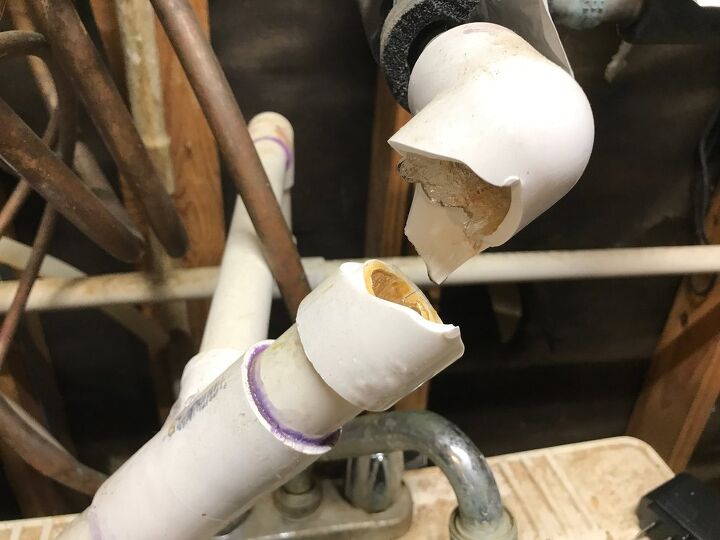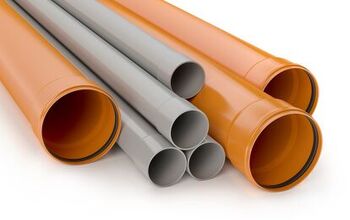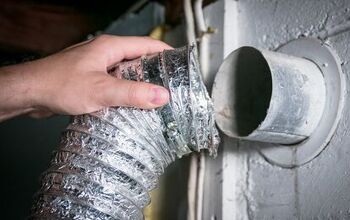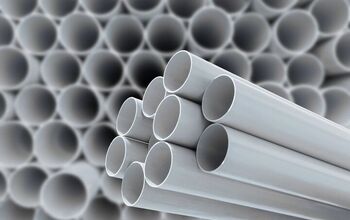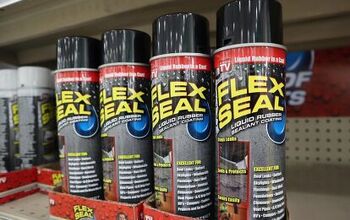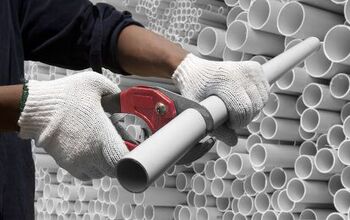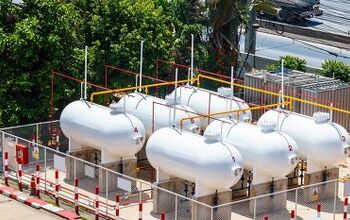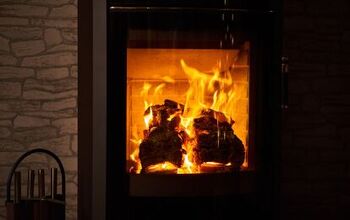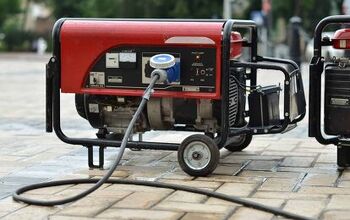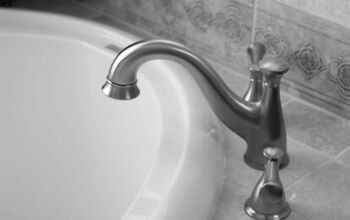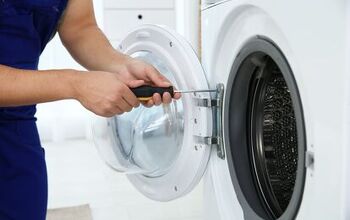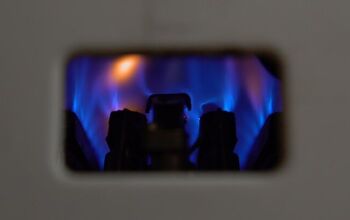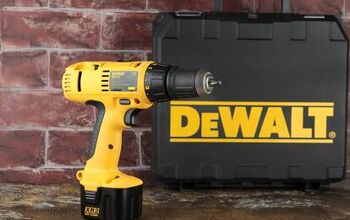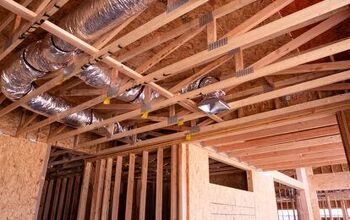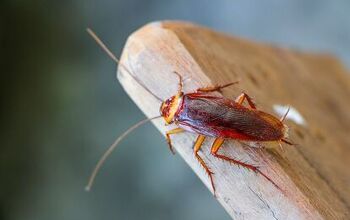What Causes PVC Pipe To Crack? (Find Out Now!)

PVC pipe has a long history with the building trades as a safe and dependable material for residential and commercial construction. However, PVC pipe is not without its shortcomings. Several issues can cause PVC pipe to develop cracks and fail in use.
Several things can cause PVC pipe to fail. These problems include environmental exposure, including temperature extremes and sunlight. Overbenind of PVC pipe can cause cracking and can overpressurization. Improper installation is often another cause of PVC pipe failure. Combining these factors is the most common reason that PVC pipe fails.
Understanding the underlying causes of PVC pipe failure due to cracking is key to preventing these situations. While PVC is a very stable and reliable product, it does have limitations. You should have a thorough understanding of these limitations to ensure your PVC pipe installation will be trouble-free.
Do You Need a Faucet, Fixture, or Pipe Repair or Replacement?
Get free, zero-commitment quotes from pro contractors near you.

PVC Pipe – An Economical Alternative
PVC pipe offers engineers and architects a cost-effective solution to metal pipe for many applications in the construction industry. PVC doesn’t corrode like metal pipes. It is strong relative to its weight and has a long expected lifespan when installed and maintained properly. Compared to metal pipe, PVC pipe is inexpensive.
However, certain considerations must be taken when specifying PVC pipe in any project. Understanding the limitations of PVC pipe and the installation requirements is key. Contractors and installers must be well-versed in the proper techniques for installing PVC pipe to ensure that it isn’t compromised. Building managers must also perform correct maintenance and inspections of PVC pipe installations to ensure proper functioning and lifespan.
The Problems With PVC Pipe
Most problems with cracking PVC pipe can be traced back to several issues, most of which result from improper installation. In many cases, the PVC pipe is used in ways that are not recommended or in environments that are not suitable for PVC pipe. These are some of the more common causes of PVC failure due to cracking.
Exposure to Rocks, Debris, or Soil Erosion
PVC is a favorite for use in underground installations. Water pipes, drain pipes, and waste pipes are all commonly buried. However, problems can soon erupt if the backfill material used around the PVC pipe is not carefully prepared. The biggest problem is backfilling with unsuitable material.
Some contractors will simply push the spoils from trenching back over the PVC pipe. Any sharp objects such as concrete debris, rocks, or other materials with sharp edges can break or puncture the PVC pipe resulting in a crack and leaks. All backfill material should be screened. The bottom of the trench should be prepared with a sand bed to properly support the PVC pipe.
Backfilled trenches can be prone to soil erosion if not properly tamped. As the soil in the trench erodes, the PVC pipe may be left unsupported, resulting in bending and eventual cracking. The backfill material should be properly tamped and protected from erosion due to rain.
Improper Installation
Faulty installation procedures account for many PVC pipe cracks and failures. PVC pipe runs must be properly supported along their length to avoid fatigue cracking of the pipe and fittings. Weight considerations are also important. While PVC pipe is structurally strong, installing PVC pipe to support too much weight can result in cracking and failures.
Solvent cement joints must also be prepared and made following nationally approved standards. The joints should be clean, straight, and free of debris or dust. Proper primer and solvent application are important. Each joint should be given the correct time to cure to ensure a good seal between the parts.
Age and Exposures
Many people are surprised to learn that the age of the PVC pipe can have a direct bearing on its performance. As PVC pipe ages, the plasticizers used to make it flexible tend to leach out of the PVC pipe. This can leave the pipe brittle and subject to cracking with very little stress or impact.
Some environmental exposures can hasten this leaching process. Exposure to UV radiation from sunlight can hasten the loss of plasticizers. Extremes in heat and cold can also produce detrimental effects on the PVC pipe. Extreme heat can soften the pipe, and extreme cold can damage the pipe when ice forms inside the pipe and expands.
Overpressurization
Each diameter of PVC pipe carries its own maximum pressure rating. In general, PVC pipe used for water systems should not be exposed to internal pressures greater than 80 pounds per square inch. Most residential and commercial building water systems operate well below this threshold, but if your system routinely sees higher pressures, you should consider other options.
Overbending
PVC pipe’s flexibility is one of its biggest features. The ability to work PVC pipe around objects and slight curves is a huge benefit of a more rigid metal pipe. However, there can be problems with flexing PVC pipe too much.
Imparting too much bend into a given length of PVC pipe can cause stress fractures in the PVC material that can eventually lead to cracking. The cracks may not appear for some time after the installation. These kinds of cracks can appear suddenly and with catastrophic results.
Vibration or Shear Stress
PVC pipe should never be connected directly to any equipment that may vibrate when used. A flexible connection should be installed between the PVC piping and mechanical equipment. Vibration imparted to the PVC pipe from the mechanical equipment can cause premature failure in the pipe and fittings.
Shear stress is any force applied to the pipe 90 degrees to the length of the pipe. This can occur from poor installation or using the pipe to carry additional loads such as shelving or other pipe hangers. The shear load can cause the PVC pipe material to crack and eventually fail.
Improper Maintenance
Many times PVC pipe fails because it has not been properly maintained. This is especially true of drain and waste pipe that may be subject to periodic cleaning. Mechanical damage to the pipe resulting in cracks can be due to improper drain augers normally used to unclog drains. Only personnel trained in the proper use of such equipment should be performing drain cleaning on PVC waste pipes
Harsh chemical drain cleaners are usually not advised with PVC waste pipes. Some chemical drain cleaners can soften the PVC pipe leaving it vulnerable to cracking or other failures. If you must use a chemical drain cleaner, make sure it is approved for PVC pipe.
Do You Need a Faucet, Fixture, or Pipe Repair or Replacement?
Get free, zero-commitment quotes from pro contractors near you.

PVC Pipe Cracks and Failures Shouldn’t Be Normal
It should not be expected that PVC pipe crack or fail under normal uses. However, in most instances, when a failure such as cracking occurs, improper installation or use is to blame. When properly installed and maintained, PVC pipe should give many years of trouble-free service.

Dennis is a retired firefighter with an extensive background in construction, home improvement, and remodeling. He worked in the trades part-time while serving as an active firefighter. On his retirement, he started a remodeling and home repair business, which he ran for several years.
More by Dennis Howard



